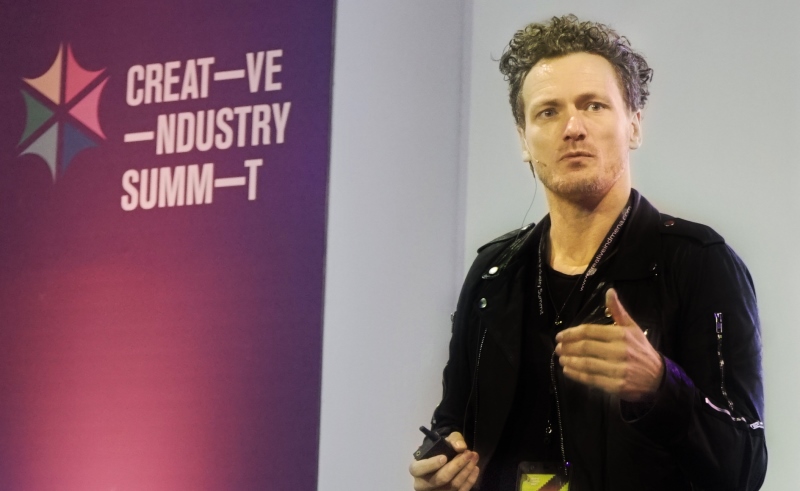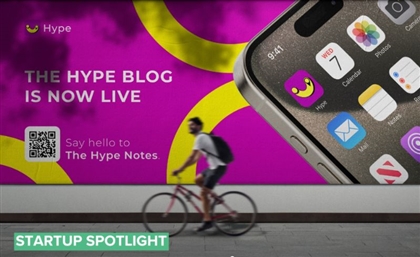Why "Mr. Goodvertising" Thinks Entrepreneurs Do Marketing Better
A global advocate for green marketing, Scandinavian author Thomas Kolster touched down in Egypt to speak at the Creative Industry Summit. In an interview with Startup Scene, he talks CSR, sustainability, and why marketing without sustainability doesn't work for Millennials.

We’re surrounded by advertising 24/7, much of it with no purpose other than selling a product; but Thomas Kolster believes that advertisers can – and should – be doing better. The marketing guru and author of Goodvertising: Creative Advertising that Cares landed in Cairo during the annual Creative Industry Summit. “I’ve always respected Egyptian creativity,” Kolster tells us. “There’s something about the humour that I just absolutely love, I think it’s kind of dry, and I think it connects very well with Scandinavian humour.”
Kolster’s personal mission is to show brands how they can be part of the solution through constructive social dialogue that pushes more than just sales. He shares his rationale behind creating more powerful, thoughtful marketing strategies that contribute to not only the brand, but social good as well. "Think about Cairo's famous traffic;" he points out. "It kind of shows where a lot of our cities are headed right now, and just think about this from a brand perspective. I mean, if you are a car brand, can you really squeeze more cars in? Most likely not. You see BMW going from being just a car company to branching out to rest of the mobility sector; brands need to challenge their role in this world to create a sustainable world.”
His book, Goodvertising, published in 2012, is the Danish author’s manifesto on the intersection of marketing and corporate social responsibility and it's the moniker for Kolster’s website, which periodically highlights examples of “goodvertising” from brands and causes around the world. One recent post publicised Nigerian medical scientist Haneefah Adam’s “Hijarbie” Instagram account, which dresses up glamorous and modest Barbies from diverse ethnic backgrounds. The site also features blog posts from marketers around the world and their analysis of social issues in advertising campaigns. In a world where ads are committed to telling you to “buy more,” Kolster’s site highlights the marketers who convince their targets to “do more” and “do better.”
Think about Cairo's famous traffic from a brand perspective. I mean, if you are a car brand, can you really squeeze more cars in?
But why should brands be responsible for making the world better through advertising? Is a brand really morally obligated to do more than sell its products? Kolster insists that they are. “The world has so many issues right now,” the idealistic marketer begins, “there’s climate change and water scarcity, and you’ve got this situation with social unrest. I think in so many ways, brands have been part of the problem, and therefore, they should be part of the solution.” Is the social dialogue advertising has created partially to blame for Egypt’s political turmoil? This is debatable. But Kolster maintains that brands have big voices, and those voices should be mobilised to effect change for social good. And the way to social change does not begin and end with lip service. “Talk is not enough anymore. It’s too cheap, millennials especially just call it out so easily. They want brands to really solve stuff, important stuff. A purposeful brand is great, but you need to be a sustainable brand,” the ex-ad man continues.
Kolster tempers his marketing call to action with a warning that brands need to be careful and conscientious about how they deliver their messages, noting that issue-focused advertising that comes across as disingenuous can harm a brand more than help it. “How authentic are these brands?” Kolster asks. “A lot of them are not working hard enough. The [infamous] Pepsi ad cannibalised on the black Lives Matter movement, but it wasn’t authentic. People didn’t believe it.” The Pepsi ad, which was widely received as being offensively shallow, was the brand’s attempt at commentary on racial tensions between the public and law enforcement in the United States. The ad, which featured people of all colours marching for the generic ideals of peace and unity, concluded with Kendall Jenner solving the problem of police brutality by giving an armed policeman a refreshing can of Pepsi. Kolster explains that truly socially responsible marketing should have some kind of measurable impact to be believed. “You’ve got the major corporations of today and we can ask what they’re actually doing in terms of environment and social responsibility,” he says. “It’s much easier to put a number on that today, so I think there’ll be a lot more pressure on them. We need to embrace transparency and separate the people who actually do stuff versus the ones who just say they’re doing it.”
Talk is not enough anymore. It’s too cheap, millennials especially just call it out so easily. They want brands to really solve stuff, important stuff.
Cairo is a booming hub for entrepreneurship, a business trend that’s increased significantly in MENA as a whole over the last several years. How do startups fit into the big issue of corporate social dialogue? Kolster, sometimes called “Mr. Goodvertising,” draws a stark distinction between established marketers and entrepreneurs. “Ad agencies claim to be about creativity and solving problems, but frankly, they’re mostly chasing short-term awards. The real interesting stuff comes from the souls of entrepreneurs. They solve things, not for awards, but because they genuinely care,” he elaborates. This proactive problem-solving spirit is influencing what Kolster hopes will be a challenge to the culture of consumption in industrialised nations. “In the beginning, you would bring people fish,” he begins. “Then, you taught people how to fish. Now, I think it’s more about asking, how can we revolutionise the fishing industry?”
The real interesting stuff comes from the souls of entrepreneurs. They solve things, not for awards, but because they genuinely care.
What’s on the horizon for the author? In addition to giving motivational talks and educational workshops, he’s penning another book, this time about the relationship between brands, consumers, and how marketing can engender empowerment in people, driven by the belief that those brands that can help consumers achieve their personal goals and “push them towards action are going to be the brands that will be successful in the future.”
Photo by @MO4Network's #MO4Productions.
Interview: Valentina Primo.
Words: Charlotte Swan.
Photographer: Federico Corno.






















